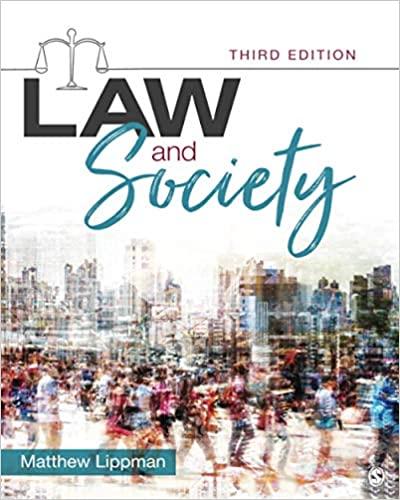Question
Help me understand the following case study: Fourth Amendment/Exclusionary Rule Officer Cyril Rombach of the Burbank Police Department, an experienced and well-trained narcotics officer, applied
Help me understand the following case study:
Fourth Amendment/Exclusionary Rule
Officer Cyril Rombach of the Burbank Police Department, an experienced and well-trained narcotics officer, applied for a warrant to search several residences and automobiles for cocaine, methaqualone, and other narcotics. Rombach supported his application with information given to another police officer by a confidential informant of unproven reliability. He also based the warrant application on his own observations made during an extensive investigation: known drug offenders visiting the residences and leaving with small packages as well as a suspicious trip to Miami by two of the suspects. A state superior court judge in good faith issued a search warrant to Rombach based on this information. Rombach's searches netted large quantities of drugs and other evidence, which produced indictments of several suspects on charges of conspiracy to possess and distribute cocaine. The defendants moved to suppress the evidence on the grounds that the search warrant was defective in that Rombach had failed to establish the informant's credibility. Should the evidence be excluded or can it be placed into evidence since the police and courts acted in good faith? Why?
Step by Step Solution
There are 3 Steps involved in it
Step: 1

Get Instant Access to Expert-Tailored Solutions
See step-by-step solutions with expert insights and AI powered tools for academic success
Step: 2

Step: 3

Ace Your Homework with AI
Get the answers you need in no time with our AI-driven, step-by-step assistance
Get Started


